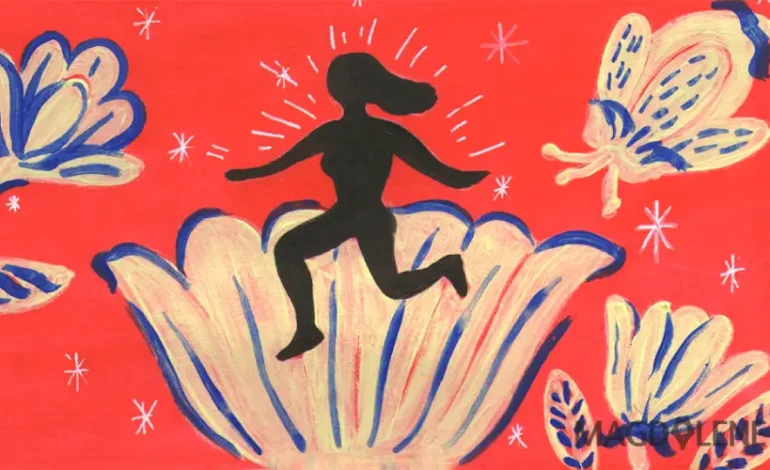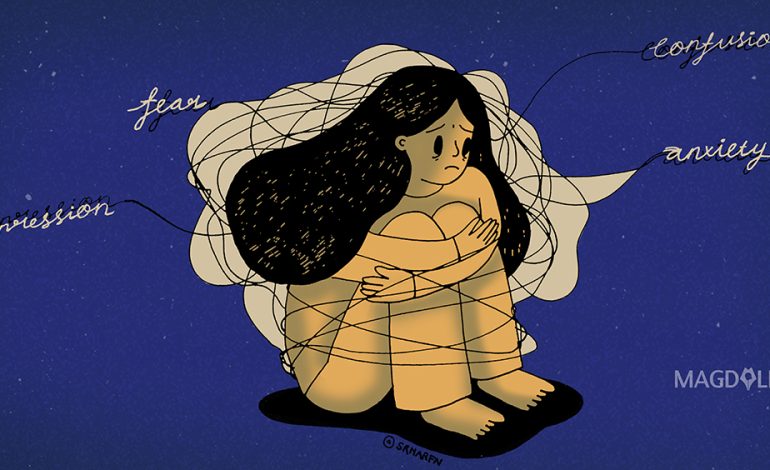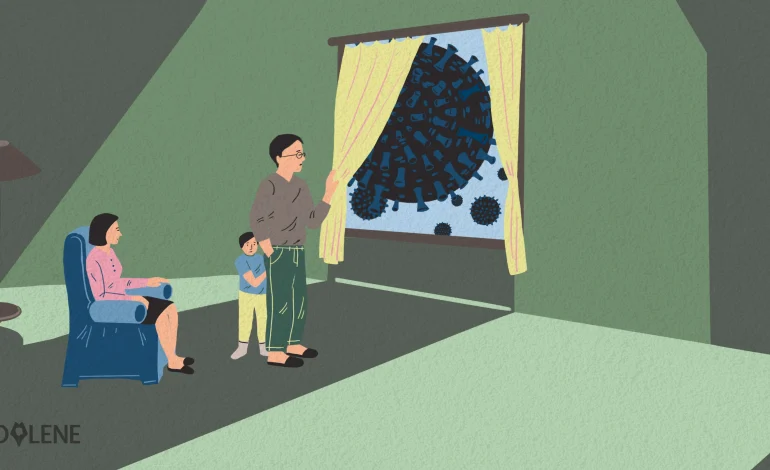What I’ve Learned from Slowing Down in The Time of Corona

I sing “Happy Birthday” twice about 20 times a day these days. I could choose another song, but it’s just too much of a hassle to think of one when you have to make sure you haven’t picked up a deadly virus every time you’ve used the bathroom, walked the dog, touched something that has just been delivered, returned from the store (after spraying the non-food stuff with disinfectant, and before taking a full shower), worked with your laptop; as well as before you cook and eat.
My hands are feeling it. The other day, when we did our weekly groceries (the only reason my husband and I go out to a public place since we started our self-quarantine two weeks ago), in the freezing dairy section, I noticed how dry and leathery my hands had become. I feared I would end up with paper cuts just from helping bag our stuff by the time we finished shopping. Needless to say, I have incorporated lotion into my handwashing routine, but in two weeks only, my hands seem to have aged about two years.
The handwashing part is nothing new. I’ve worked with UNICEF in the past, so I’d known the importance of keeping your hands clean and how to best wash them even before the arrival of COVID-19. This singing ritual, though, is another story.
It is a story of adding another layer of caution, of making sure you’ve reached all the nooks and crannies by slowing the process. It is a story of constantly being mindful and at the same allowing yourself to take a pause.
It is a story of slowing down.
I am impatient and I do things quickly. If you know me and have walked alongside me, you may notice that sometimes I would end up walking a few steps ahead unthinkingly, before stopping and realizing that I’ve left you behind. I finish my food while it’s still hot, and the average time I finish a book is one to two weeks (if it’s an emotionally difficult book, which I’ve tried to stay away from in recent years). When I was still in the dating scene, I would decide fast on whether or not I should pursue a person that I fancy.
This impatience puts me in constant multitasking mode: I put on my leotard and tights before my ballet class while sitting in the toilet seat peeing, I use my commuting time on MRT or taxi to learn stuff on podcast, and rarely do I go on holidays without bringing some sort of work, or work-related material to study.
It wasn’t until a massive global pandemic hit that I noticed how the world seems to be slowing down when you sing “Happy Birthday” twice while washing your hands. In truth, I have begun to enjoy the act. It feels almost like a quick meditation. If washing your hands was a banal activity that I had always taken for granted and never noticed until it was over before, now I am mindful of the process. To me, this seems like the microcosm of the world at the moment.
The world is slowing down as the deadly virus is rapidly multiplying. With many people being forced to stay home leading to decline in productivity and consumption, the economic slowdown will cause a severe shock throughout the world.
Perhaps the scariest thing about this is the feeling that you have nowhere to run. In a war or conflict situation you can at least flee for safety. A natural disaster has a timeframe: once it is over, the reconstruction process begins. But when the enemy is a virus that infects the rich and the poor equally – thus leveling the field – with healthy-looking people being possible carriers, and causing countries to close their borders, your only choice is to stay put and wait it out. Wait until the curve is flattened. Until more test kits arrive. Until the medical infrastructure is ready. Until they’ve come up with a vaccine.
The “when” remains the million-dollar question.
It wasn’t until a massive global pandemic hit that I noticed how the world seems to be slowing down when you sing “Happy Birthday” twice while washing your hands.
I have a father who is 77 years old and cannot stay put. Even this morning (10 days after the government urged people to work from home), he still showed up to his office. He has never missed a day of work in his life, except for the one time when he was hospitalized a few years back. In this past week, every effort we had put into making him stay home, from pleading to shaming, was met with defiance. He would only work from home if the government sent his office a letter to do so, he said.
On top of my business-related anxiety, for days I was stressed out thinking of how my father would contract the virus, and how it would infect my 74-year-old mom, who has high blood pressure issue and has had a heart surgery, and the rest of the people in their house, including my nieces and a couple of assistants. I cried myself to sleep in my anxiety, until I finally found a way to keep him home (which, unfortunately, I cannot reveal here, but it involves doing something behind his back), and it worked. My father was sent home from work today. Perhaps I can thank my journalistic resourcefulness for this, but desperate times call for desperate measures.
The remarkable thing for me, though, is how the pandemic has forced us to change our way of living, and how it has reminded us of the importance of being mindful at all times. To keep the hands away from the face, to maintain physical distance from others, to touch as little surface in public places as we can (and to wash our hands if having done so).
And while the self-quarantine has brought out the worst in some people – with hoarding, profiteering, or even domestic abuses – it has also allowed many of us to contemplate our blessings. When millions of Indonesians in the informal sector lose their income, and many struggle while juggling work with tending to their children at home, to be able to work from a home that has a working internet, running water, and food in the pantry is a privilege.
When you start with what you have, instead of what you don’t have, you may begin to notice the abundance. You may realize how much of what you have is not needed. How much of what you have you had taken for granted. This is a life lesson that I hope I will remember forever, even when times are good.
Indeed, we make do with we have. In locked-down Italy, people make music together from their balconies. Professional and semi-professional musicians were exceedingly bountiful in sharing their talents to fill the absence of human interaction, holding mini concerts on social media or jamming together online with fellow musicians.
People are returning to their long-forgotten passion, from drawing to making collage. Some people engage in charity work, helping collect donations for those in needs, from online ojek drivers to health workers in dire needs of protective suits. My two dance teachers give free online lessons, and some of my fellow adult ballerinas even got together on Zoom to master the Mama Mia, presumably the latest TikTok dance challenge.
Speaking of that, video conference call platforms are now being used not just for business meetings but for chatting among friends and families. I have twice got on video con-calls with my sisters and my mom this week alone, even though our family WhatsApp group rarely gets quiet.
I am an introvert who often prefers staying home to going out and meeting people. Still, these days I feel a sense of excitement before a video call begins, even if it’s only work related. Finally, I see people’s faces, and they’re healthy and breathing. Finally, I can hear them laugh instead of seeing emojis or GIFs that represent some sort of emotion. When your timelines are constantly filled with bad and scary news, when the future never seems more uncertain, seeing others’ faces can certainly be life affirming.






















